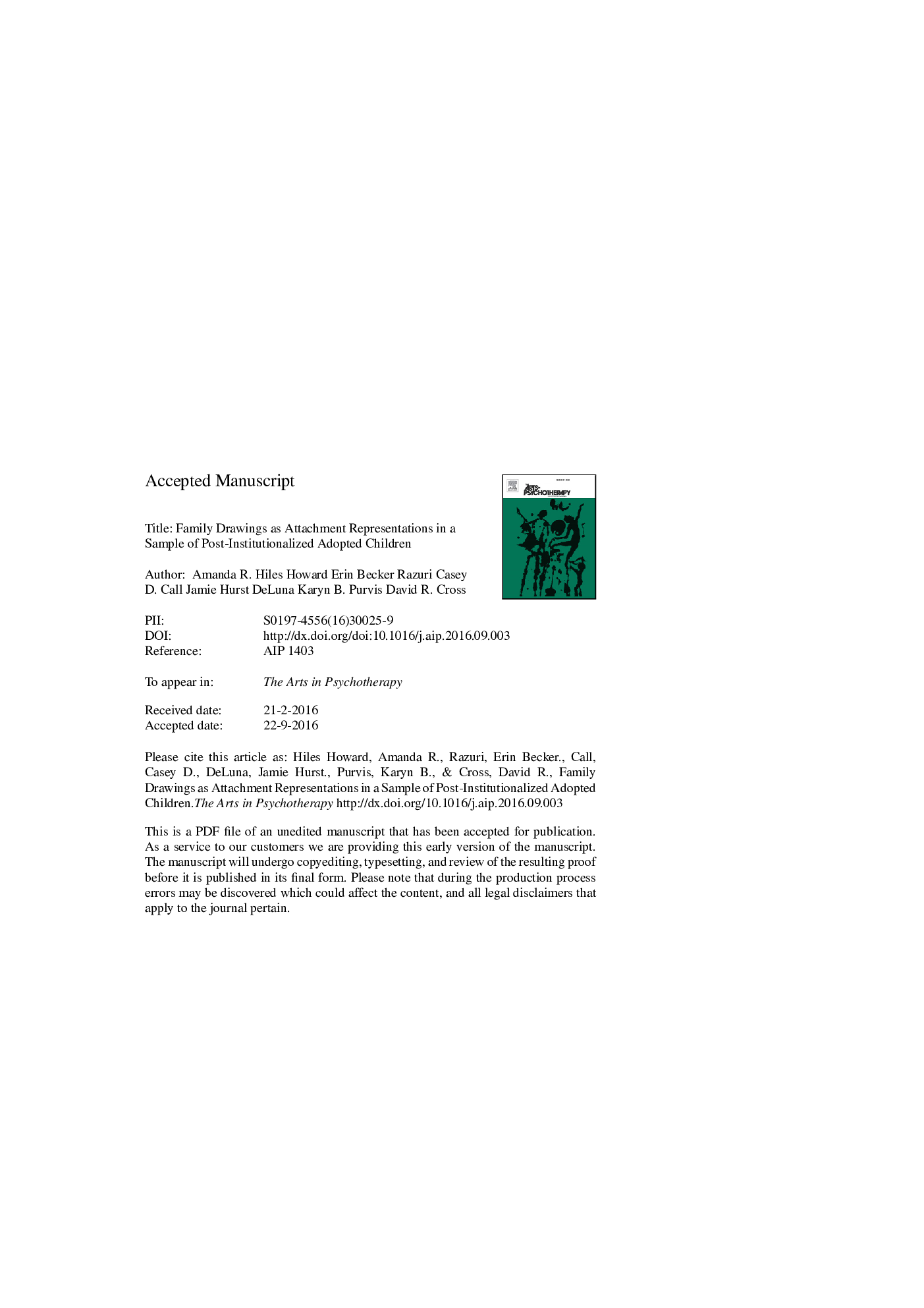| Article ID | Journal | Published Year | Pages | File Type |
|---|---|---|---|---|
| 4935745 | The Arts in Psychotherapy | 2017 | 42 Pages |
Abstract
Family drawings are thought to be a valuable tool for assessing attachment representations, but have not often been used with post-institutionalized adopted children thought to be at risk for attachment disturbances. The current study compared family drawings from a sample of post-institutionalized adopted children to a sample of children who entered their family by birth with similar levels of executive functioning. All families were residing in a major metropolitan area in the southwestern United States of America. Drawings were scored using Fury, Carlson, and Sroufe (1997) rating scales. The overall pattern of findings indicates family drawings of at risk adopted children and biological comparison children differ significantly in both objective scores and subjective ratings, suggesting that children in the adopted sample are at greater risk for attachment-related disturbances than children in the comparison sample. These findings corroborate other studies reporting attachment difficulties in post- institutionalized adopted children and indicate that family drawings are a sensitive and valid approach to assessing disturbances related to attachment representations during childhood.
Related Topics
Health Sciences
Medicine and Dentistry
Psychiatry and Mental Health
Authors
Amanda R. Hiles Howard, Erin Becker Razuri, Casey D. Call, Jamie Hurst DeLuna, Karyn B. Purvis, David R. Cross,
